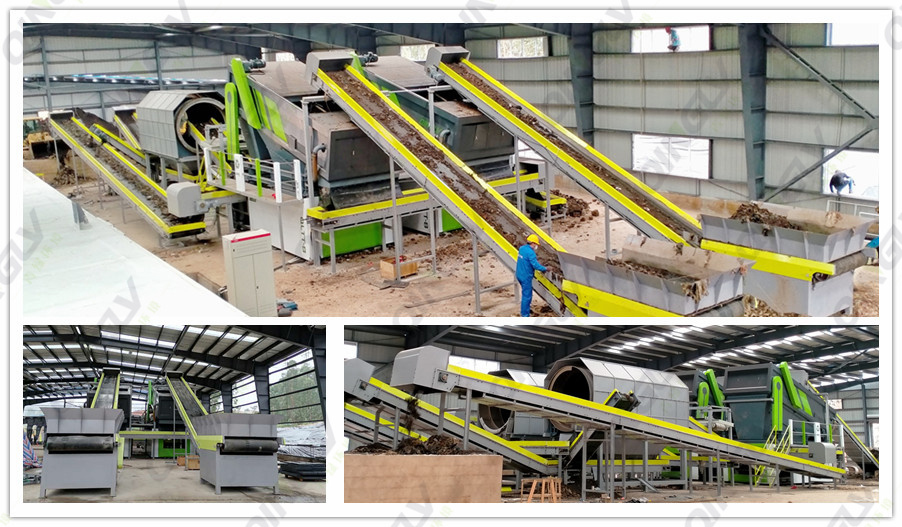 Time:2024-12-25
Time:2024-12-25
 Source:青绿环境
Source:青绿环境
Aged waste screening equipment is specifically designed to handle the organic components of urban domestic waste, such as kitchen waste and food residues. These types of waste typically contain high levels of moisture and organic matter, which are prone to rotting and spoilage, hence the term "aged waste." These devices play a crucial role in modern urban waste management, transforming organic waste into valuable resources through efficient screening, sorting, and processing, while reducing environmental pollution.

The working principle of aged waste screening equipment can generally be divided into several steps: First, waste is fed into a pre-treatment unit where large debris and non-degradable materials, such as plastic bags and metals, are removed to ensure the smooth progress of subsequent treatment processes. Next, the pre-screened waste enters the main screening system, which further subdivides the waste using physical or biological methods. Physical methods may include mechanical devices such as vibrating screens and drum screens that separate materials based on size and weight differences; biological methods, on the other hand, accelerate the decomposition of organic matter through the action of microorganisms and are suitable for treating organic waste with high water content.
During this process, odor control systems are also equipped to manage unpleasant smells, as aged waste generates foul odors during decomposition. Additionally, to improve resource recovery rates, some advanced screening equipment integrates modules for oil-water separation and fertilizer treatment, enabling the final output to include not only dry organic matter but also potential raw materials for producing bio-fertilizers or bioenergy (such as biogas).
The benefits of using aged waste screening equipment are apparent: it not only effectively reduces the pressure on urban landfills, extending their service life, but also promotes the recycling of resources, aligning with the concept of sustainable development. For instance, the transformed organic matter can be used as a soil conditioner to increase soil fertility; the produced biogas can serve as a clean energy source, reducing dependence on fossil fuels.
In summary, aged waste screening equipment is an important tool for addressing urban domestic waste issues and promoting green circular economies. With advancements in technology and increased environmental awareness, the application of such equipment will become more widespread and efficient.













 Prev
Prev











